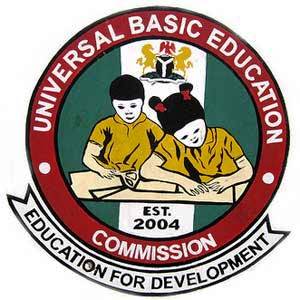
THE Executive Secretary, Universal Basic Education Commission (UBEC), Dr Hamid Bobboyi, has reiterated the commitment of the commission to implementation of the Effective Schools Programme (ESP) to boost smart education in Nigeria.
He has also charged chairmen of the State Universal Basic Education Boards (SUBEBs) on the implementation of the programme aimed at improving teaching, learning and outcomes in schools.
The Effective School Programme, according to him, was conceptualised by UBEC to test the efficacy of the minimum standards in Universal Basic Education (UBE) delivery and provide lessons for progressively scaling up these standards in all schools in Nigeria over the next six years.
It is expected that over the life of the programme, the participating schools will progressively improve the quality of their UBE service delivery and move up the quality ladder to become not just effective schools but outstanding schools in terms of quality of educational outputs.
Dr Hamid Bobboyi, speaking at a meeting of UBEC with chairmen of SUBEBs from the 36 states of the federation and FCT, on Effective Schools Programme, said the meeting marked the take-off of the Effective Schools Programme implementation.
He said the distribution of instructional materials, installation of satellite-based education systems, training of head teachers and teachers in the effective schools would follow immediately.
He added that as the programme progresses, additional improvements would be made in the schools with the goal of meeting the minimum standards in basic education.
He said that the implementation of the ESP would lead to the investment in the improvement of learning conditions and processes to produce basic education graduates with effective life skills.
He said equipping students with skills would enable them to participate and compete effectively in the 21st Century knowledge economy.
“As a commission, we have considered the prime importance of investing in improving key aspects of UBE delivery with a view to having better outcomes.
“This resolve is what prompted our drive towards reinventing the mechanisms for improved inputs and processes in the implementation of UBE activities, as this will be the safe guarantee of improved outcomes’’.
“ESP seeks to ensure collective actions at the national and state levels in ensuring that prescribed minimum standards in basic education service delivery are attained and further scaled up towards ensuring effectiveness of teaching and learning with commensurate learning outcomes,” he said.
According to him, under the ESP, the desire of the commission is to support SUBEBs towards implementing the minimum standards in all the schools previously designated as UBEC e-learning centres.
“It is envisaged that through this effort, we will create centres of excellence as we improve the inputs and processes deployed for teaching and learning in the schools,” he said.
In his remarks, the dean of chairmen, SUBEB, Professor Shehu Adaramaja, said the transformation of the e-learning programme into ESP would help improve the education outcomes of Nigerian students.
He said Nigeria is second in terms of literacy level in Africa noting that the full implementation of smart education would rank Nigeria as first in Africa.
Read Story: TB is dangerous, can affect child’s brain function — Akingbesote
Source: